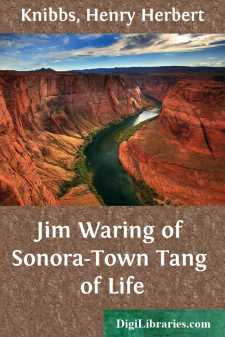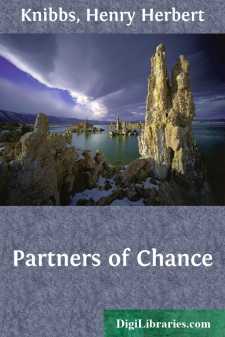Categories
- Antiques & Collectibles 13
- Architecture 36
- Art 48
- Bibles 22
- Biography & Autobiography 813
- Body, Mind & Spirit 142
- Business & Economics 28
- Children's Books 16
- Children's Fiction 13
- Computers 4
- Cooking 94
- Crafts & Hobbies 4
- Drama 346
- Education 46
- Family & Relationships 57
- Fiction 11829
- Games 19
- Gardening 17
- Health & Fitness 34
- History 1377
- House & Home 1
- Humor 147
- Juvenile Fiction 1873
- Juvenile Nonfiction 202
- Language Arts & Disciplines 88
- Law 16
- Literary Collections 686
- Literary Criticism 179
- Mathematics 13
- Medical 41
- Music 40
- Nature 179
- Non-Classifiable 1768
- Performing Arts 7
- Periodicals 1453
- Philosophy 64
- Photography 2
- Poetry 896
- Political Science 203
- Psychology 42
- Reference 154
- Religion 513
- Science 126
- Self-Help 84
- Social Science 81
- Sports & Recreation 34
- Study Aids 3
- Technology & Engineering 59
- Transportation 23
- Travel 463
- True Crime 29
Jim Waring of Sonora-Town Tang of Life
Description:
Excerpt
Chapter I
The Cañon
Waring picketed his horse in a dim angle of the Agua Fria Cañon, spread his saddle-blanket to dry in the afternoon sun, and, climbing to a narrow ledge, surveyed the cañon from end to end with a pair of high-power glasses. He knew the men he sought would ride south. He was reasonably certain that they would not ride through the cañon in daylight. The natural trail through the Agua Fria was along the western wall; a trail that he had avoided, working his toilsome way down the eastern side through a labyrinth of brush and rock that had concealed him from view. A few hundred yards below his hasty camp a sandy arroyo crossed the cañon's mouth.
He had planned to intercept the men where the trail crossed this arroyo, or, should the trail show pony tracks, to follow them into the desert beyond, where, sooner or later, he would overtake them. They had a start of twelve hours, but Waring reasoned that they would not do much riding in daylight. The trail at the northern end of the cañon had shown no fresh tracks that morning. His problem was simple. The answer would be definite. He returned to the shelter of the brush, dropped the glasses into a saddle-pocket, and stretched himself wearily.
A few yards below him, on a brush-dotted level, his horse, Dexter, slowly circled his picket and nibbled at the scant bunch-grass. The western sun trailed long shadows across the cañon; shadows that drifted imperceptibly farther and farther, spreading, commingling, softening the broken outlines of ledge and brush until the walled solitude was brimmed with dusk, save where a red shaft cleft the fast-fading twilight, burning like a great spotlight on a picketed horse and a man asleep, his head pillowed on a saddle.
As the dusk drew down, the horse ceased grazing, sniffed the coming night, and nickered softly. Waring rose and led the horse to water, and, returning, emptied half the grain in the morral on a blanket. Dex munched contentedly. When the horse had finished eating the grain, Waring picketed him in a fresh spot and climbed back to the ledge, where he sat watching the western wall of the cañon, occasionally glancing up as some dim star burned through the deepening dusk and bloomed to a silvery maturity.
Presently a faint pallor overspread the cañon till it lay like a ghostly sea dotted with strange islands of brush and rock; islands that seemed to waver and shift in a sort of vague restlessness, as though trying to evade the ever-brightening tide of moonlight that burned away their shrouds of dusk and fixed them in still, tangible shapes upon the cañon floor.
Across the cañon the farther trail ran past a broad, blank wall of rock. No horseman could cross that open space unseen. Waring, seated upon the ledge, leaned back against the wall, watching the angling shadows shorten as the moon drew overhead. Toward morning he became drowsy. As the white radiance paled to gray, he rose and paced back and forth upon the narrow ledge to keep himself awake....



